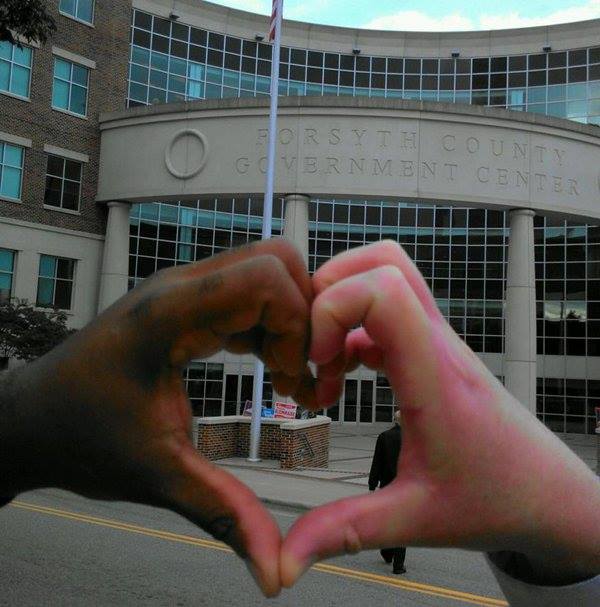The WE DO Campaign launched a new chapter in equality efforts across the South and was the first coordinated campaign calling for marriage equality in the region. WE DO actions told a story about what it is to be LGBTQ in the South and to express our fundamental equality and humanity in the public square.
From 2011 to 2015, more than 200 LGBTQ couples across the South took part in the WE DO Campaign. They requested – and were denied – marriage licenses in their hometowns in order to call for full equality under the law.
These actions revealed the impact of discriminatory laws, and illustrated what it looks like when LGBT people are treated as second-class citizens. Read more about the WE DO Campaign from USA Today:
For Monty Garrish and Steve Myszak, a couple who live in Wilson, North Carolina, participating in WE DO meant holding hands in their hometown for the first time in their 18-year relationship.
Many people asked us why we took these actions across the South, where LGBT rights are often considered unwinnable in the short-term. We believed – and continue to – that LGBT people and allies in the South have a crucial role to play in building public support for LGBT equality – by telling our stories, by shining a light on the harms of discriminatory state laws, and by advocating for federal equality.
LGBT people live in every town in the South, and yet we are often invisible. We are told that we should wait an undetermined period of time to be equal citizens, or that we should move if we want to be treated equally.
But telling LGBTQ people that in order to have equal rights, they must leave their homes, their families and friends, the place they love, is not something we accept. For those that must leave for reasons of safety, employment, housing – any reason – we will keep working until the South no longer treats LGBT people as second-class citizens.

To meet the couples that have participated in the WE DO Campaign click here. These brave couples and the friends and family who stand with them are speaking for a much larger community of LGBTQ people across the South. For every couple that applied we met many more who would have liked to apply, but could not for a variety of reasons, including fear of losing their job or housing.

